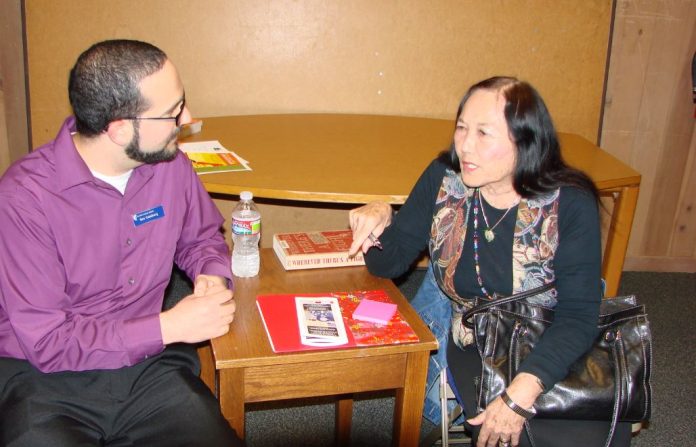The family of Jeanne Wakatsuki Houston confirmed Monday that the author of Farewell to Manzanar is dead at the age of 90 of natural causes after a fight with cancer, reports Pacific Citizen.
Her book on her experience as a child at the incarceration camp in Manzanar, California sparked a national conversation in 1973 about the concentration camps.
The television movie adaptation in 1976 of the book she co-authored with her husband, James Houston, reignited that interest.
“I really saw it in the end when she was facing cancer,” said her son Joshua Houston to the Monterey Herald. “She was completely unwavering, unflinching and faced it with open eyes and just showed strength and courage all through the end.”
The author spent three and one-half years at Manzanar beginning at age 7, according to the Kirkus Reviews. The federal government herded her and her family into barren barracks along with other Japanese Americans.
Farewell to Manzanar is regularly assigned to high school and college classes. Other books she has written include The Legend of Fire Horse Woman, and a nonfiction book, Don’t Cry, It’s Only Thunder, co-written with Paul G. Hensler.
The Pacific Citizen reports the San Francisco Chronicle named Farewell to Manzanar in the top 100 in importance in western literature in the 20th century.
She shared during a talk she gave in Santa Monica in 2018 said a question her nephew asked her inspired her to write the book.
“You were locked up in a prison. How do you feel about that?”
She said no one had ever asked that of her before. She said the question caused her to cry.
Her own husband was not aware of her family history and offered to write the book with her so the nation could learn from her story.
Japanese American activist Frank Abe appeared in the TV adaptation of Farewell to Manzanar. He has known Houston since his college days.
“To me she at first was just Jeanne Houston, my housing officer in 1970 at Cowell College in the early days of UC Santa Cruz, a younger Nisei with a sunny smile who seemed more like a peer than administrator,” he wrote in a tribute published in Resisters. “We’d share breakfast in the Cowell Commons and not once did she ever mention camp or the war.”

